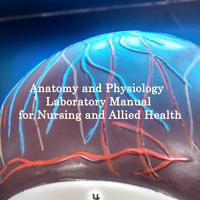Search
Books+
Searching 1,73 books
Search related to the career Nurse Practitioner
Educational Requirements:
To become a Nurse Practitioner (NP), you need to meet certain educational requirements. These typically include:
1. Obtaining a Bachelor of Science in Nursing (BSN) degree: This is the first step towards becoming an NP. You must complete a four-year undergraduate program in nursing, which includes both classroom instruction and clinical training.
2. Obtaining a Registered Nurse (RN) license: After completing your BSN degree, you need to pass the National Council Licensure Examination for Registered Nurses (NCLEX-RN) to become a licensed RN. This allows you to practice as a registered nurse.
3. Earning a Master of Science in Nursing (MSN) degree: To become an NP, you must pursue a master's degree in nursing. This program typically takes two to three years to complete and focuses on advanced nursing concepts and specialized clinical training.
4. Doctor of Nursing Practice (DNP) degree: While not always required, some NPs choose to pursue a Doctor of Nursing Practice degree to further enhance their knowledge and skills. The DNP program typically takes an additional 1-3 years to complete.
Certification and Licensure Requirements:
In addition to the educational requirements, NPs must also fulfill certification and licensure requirements, which may vary by state. These requirements typically include:
1. Obtaining national certification: After completing your MSN or DNP degree, you must pass a national certification exam specific to your chosen NP specialty. Examples of certifying bodies include the American Nurses Credentialing Center (ANCC) and the American Academy of Nurse Practitioners Certification Board (AANPCB).
2. State licensure: Once you have obtained national certification, you must apply for state licensure in the state where you intend to practice as an NP. Each state has its own licensing board and requirements, which may include submitting an application, providing proof of education and certification, and passing a state-specific exam.
Continuing Education:
To maintain your NP license and certification, you will need to engage in ongoing continuing education. This may involve completing a certain number of continuing education units (CEUs) or participating in professional development activities. Requirements for continuing education vary by state and certifying bodies.
It's important to note that the specific requirements to become an NP may vary depending on the country, state, or institution you are applying to. It is advisable to research and consult the appropriate regulatory bodies or educational institutions to obtain the most accurate and up-to-date information.
Source: Various AI tools
Vocational skills
Searched in English.











